detail profile youssef chahine
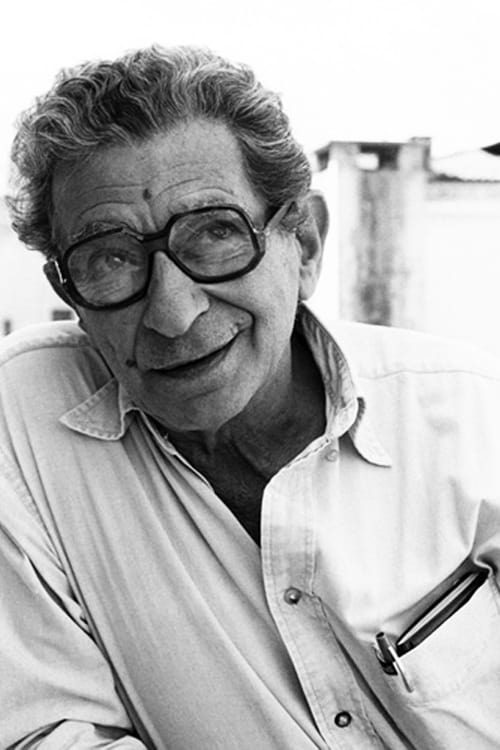
Youssef Chahine
يوسف شاهين
atau dikenal sebagai
Riwayat Hidup
Youssef Chahine (born in Alexandria, Egypt, 1926) started studying in a friars' school and then turned to Victoria College until High School Certificate.
After one year at the University of Alexandria, he moved to the U.
S.
and spent two years at the Pasadena Play House, taking courses on film and dramatic arts.
After coming back to Egypt, cinematographer Alevise Orfanelli helped him into the film business.
His film debut was Baba Amin (1950): one year later, with Son of the Nile (1951) he was first invited to the Cannes Film festival.
In 1970, he was awarded a Golden Tanit at the Carthage Festival.
With Le moineau (1973), he directed the first Egypt-Algeria co-production.
He won a Silver Bear in Berlin for Alexandria.
.
.
Why? (1979), the first installment in what proved to be an autobiographic trilogy, completed with Hadduta Masriya (1982)(An Egyptian Story (1982)) and Alexandria: Again and Forever (1989).
In 1992, Jacques Lassalle proposed him to stage a piece of his choice for Comédie Française: Chahine chose to adapt Albert Camus' "Caligula," which proved hugely successful.
The same year he started writing The Emigrant (1994), a story inspired by the Biblical character of Joseph, son of Jacob.
This had long been a dream project, and he finally got to shoot it in 1994.
In 1997, 46 years and 5 invitations later, he was again selected Hors Competition in Cannes with Destiny (1997).
Info Pribadi
Peran Yang Di Mainkan Youssef Chahine
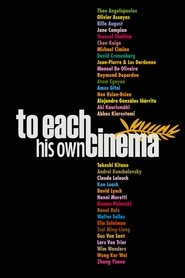 Commissioned to mark the 60th anniversary...
Commissioned to mark the 60th anniversary...To Each His Own Cinema 2007
Commissioned to mark the 60th anniversary of the Cannes Film Festival, "To Each His Own Cinema" brought together 33 of the world's pre-eminent filmmakers to produce short pieces exploring the multifarious facets of cinema and their perspective on the state of their chosen artform in the early 21st century.
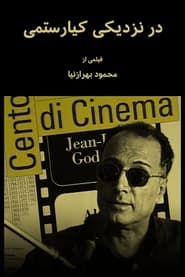 A documentary that focuses on Abbas...
A documentary that focuses on Abbas...Kiarostami in Close up 2000
A documentary that focuses on Abbas Kiarostami's cinematic philosophy talking to himself and other figures, and also seeks the opinion about his works both inside and outside his homeland.
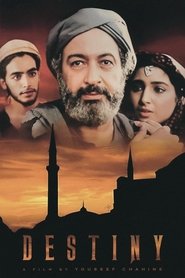 In the 12th centurys Andalusia lives...
In the 12th centurys Andalusia lives...Destiny 1997
In the 12th century's Andalusia lives Ibn Rushd a prominent Islamic philosopher with his wife Zeinab and daughter Salma. The principality is ruled by Khalifa ElMansour who has two sons, ElNasser, an intellectual that likes Ibn Rush and is in love with his daughter Salma. The younger son Abdallah is more into dancing and poetry, spending most of his times with the gypsy family and getting the daughter pregnant. The Khalifa is depending on the extremists to build his army granting them more power which they use to combat artists and philosophers. The extremists succeed in recruiting Abd Allah and train him to kill his father. Events go on where Marawan, the gypsy singer, is killed and Ibn Rushd's books are burnt. Adapted from the real life of Ibn Rushd AlMasir is Chahine's statement against extremism.
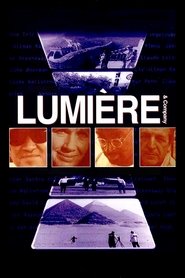 40 international directors were asked to make...
40 international directors were asked to make...Lumière & Company 1995
40 international directors were asked to make a short film using the original Cinematographe invented by the Lumière Brothers, working under conditions similar to those of 1895. There were three rules: (1) The film could be no longer than 52 seconds, (2) no synchronized sound was permitted, and (3) no more than three takes.
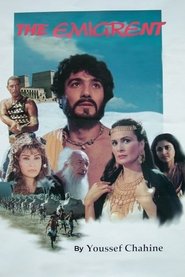 The biblical tale of Joseph is...
The biblical tale of Joseph is...The Emigrant 1994
The biblical tale of Joseph is told from an Egyptian perspective in this interesting character study. In this film, Joseph is called Ram. Ram, tired of his family's backward superstitious life, and tired of being picked on by his brothers, wants to go to Egypt to study agriculture. His brothers travel with him across Sinai, but then suddenly sell him to Ozir, an Egyptian who works for a Theban military leader, Amihar. Amihar is impressed by Ram's drive and personal charm and so grants Ram some desolate land outside the capital. Ram soon finds himself a pawn in the political and sexual games between Amihar and his wife Simihit, a high priestess of the Cult of Amun.
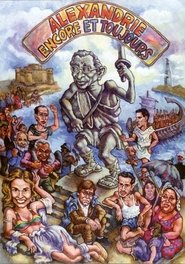 Set in 1987 against the backdrop of...
Set in 1987 against the backdrop of...Alexandria Again and Forever 1989
Set in 1987 against the backdrop of a hunger strike by the Egyptian film industry, Chahine himself steps in to play Yehia, the famed Egyptian director whose life is chronicled in "Alexandria, Why?" and "An Egyptian Story". Obsessed with Amr, the handsome actor he discovered and cast as his alter-ego in parts one and two of The Alexandria Trilogy, Yehia pressures Amr to star in various film projects that change even as Yehia's perception of the young actor begins to change. He first casts Amr as Hamlet, which the actor deems too demanding for his talents, then as the lead in a musical biopic of demigod Alexander the Great, who founded the city of Alexandria in 332 B.C.
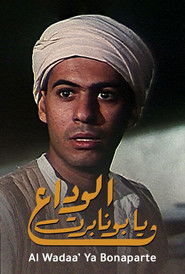 This bigbudget historical epic from acclaimed...
This bigbudget historical epic from acclaimed...Adieu Bonaparte 1985
This big-budget historical epic from acclaimed Egyptian director Youssef Chahine features a crazed turn by Patrice Chereau as Napoleon Bonaparte. The film, an Egyptian-French co-production, deals with Napoleon's occupation of Alexandria and its effect on a typical Egyptian family. Michel Piccoli leads the cast as a general in Napoleon's army who tentatively befriends a local poet.
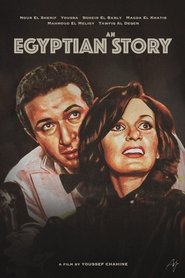 After we last see him in...
After we last see him in...An Egyptian Story 1982
After we last see him in "Alexandria, Why?" Egyptian filmmaker Yehia Mourad is in his thirties, and successful in his work, he has grown distant from his wife and children and suffers a symbolic blockage of the heart while shooting the final scenes of his latest film. After being flown to England for evaluation, it's determined that Yehia must undergo emergency surgery. Fact and fiction blend seamlessly—with healthy doses of cleverly absurdist fantasy—as the film explores the various personalities and forces that have made Yehia (and Youssef Chahine) the man he has become.
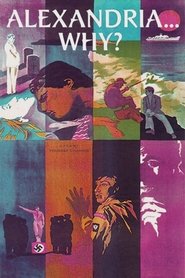 Amid the poverty death and suffering...
Amid the poverty death and suffering...Alexandria… Why? 1979
Amid the poverty, death, and suffering caused by World War II, 18-year-old Yehia retreats into a private world of fantasy and longing. Obsessed with Hollywood, he dreams of studying filmmaking in America but struggles to pursue his dream, given the constraints of his life in the middle class and the horrors of war.
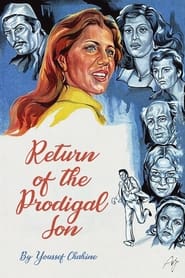 Freed after spending years in prison...
Freed after spending years in prison...Return of the Prodigal Son 1976
Freed after spending years in prison, an activist's homecoming turns into a dark affair as his disillusion clashes with his family's expectations. Demonstrating Chahine’s eclecticism, this is an elegant melodrama, exuberant musical, layered allegory, and profound portrait of personal and political disillusionment.
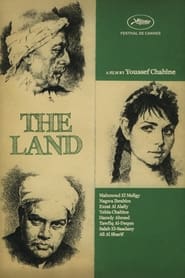 Set in 1933 the mayor informs the...
Set in 1933 the mayor informs the...The Land 1970
Set in 1933, the mayor informs the peasants that the share of irrigation of their land will be split equally between them and feudal lord Mahmoud Bey. The peasants send Mohamed Effendi to submit a petition to the government. Mahmoud Bey then proposes a project that would require taking part of the peasants' lands.
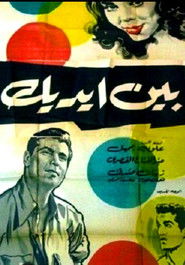 The story deals with an upscale...
The story deals with an upscale...In Your Hands 1960
The story deals with an upscale family that is down on its luck. As the butcher Madbouly foots the bills for the entire family, the authoritative Berlanty is the one in charge. When the carpenter Ragab falls for Madbouly's niece Amal, Berlanty insists he finishes his education first.
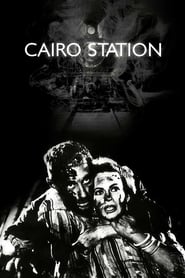 Qinawi a physically challenged peddler who...
Qinawi a physically challenged peddler who...Cairo Station 1958
Qinawi, a physically challenged peddler who makes his living selling newspapers in the central Cairo train station, is obsessed with Hanuma, an attractive young woman who sells drinks. While she jokes with him about a possible relationship, she is actually in love with Abu Siri, a strong and respected porter at the station who is struggling to unionize his fellow workers to combat their boss' exploitative and abusive treatment.
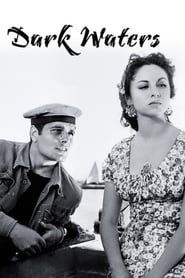 Ragab a poor sailor returns home...
Ragab a poor sailor returns home...Dark Waters 1956
Ragab, a poor sailor, returns home to Alexandria after three years of absence, during which he tried to save money to marry his one true love, Hamedah. But there's trouble on the harbor, and with an old friend.
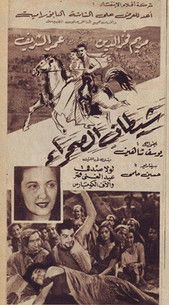 Essam a young bedouin who discovers...
Essam a young bedouin who discovers...The Devil of the Desert 1954
Essam, a young bedouin who discovers the cruel tyranny of his ruler after people from his tribe are unjustly murdered, decides to overthrow him.
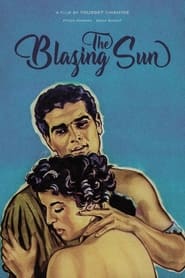 A wealthy landlord floods and destroys...
A wealthy landlord floods and destroys...The Blazing Sun 1954
A wealthy landlord floods and destroys a village on purpose to prevent the people living there from making a profit off their crops. What he doesn't know is that his own daughter, Amal, is in love with Ahmed, a young man from the village.
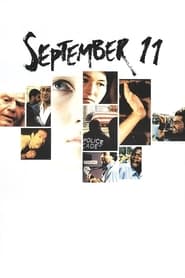 Filmmakers from all over the world...
Filmmakers from all over the world...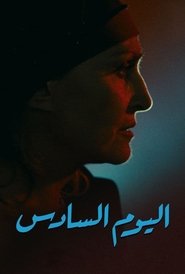 Egypt 1947 in the midst of a...
Egypt 1947 in the midst of a...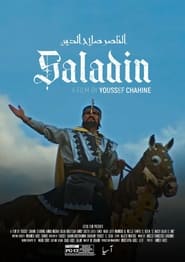 The first Sultan of Egypt and...
The first Sultan of Egypt and...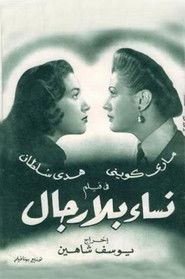 A brother disagrees with his sister...
A brother disagrees with his sister...